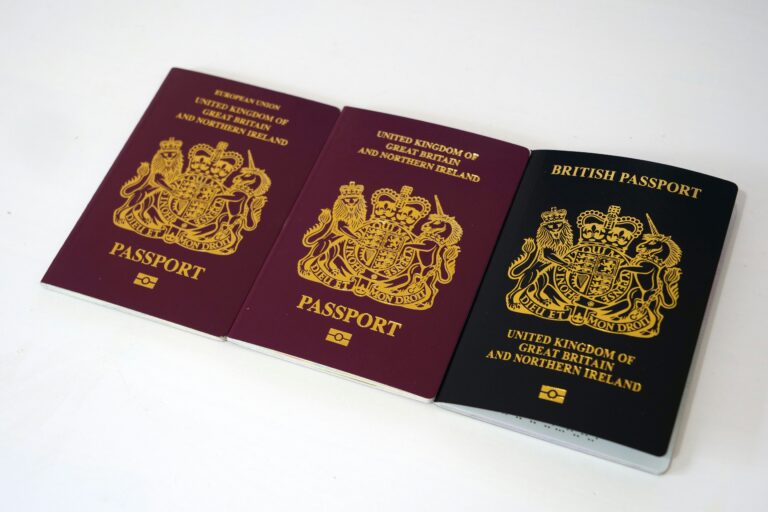As workplaces become increasingly global, HR leaders are finding themselves responsible for navigating complex immigration landscapes. Among the various immigration routes, the UK Unmarried Partner Visa plays an important role for employees who are in long-term, committed relationships with British citizens or individuals settled in the UK.
Although this visa does not require employer sponsorship, it comes with significant implications for HR compliance. Employers must conduct right-to-work checks, manage documentation securely, and support employees through visa renewals or transitions, all while upholding inclusivity and employee wellbeing.
This article outlines the key compliance tips HR professionals need to know when managing employees holding an Unmarried Partner Visa in the UK.
1. Understanding the Unmarried Partner Visa
The Unmarried Partner Visa allows individuals in a genuine and subsisting relationship with a UK citizen or settled person to live and work in the UK. Applicants must demonstrate at least two years of cohabitation as evidence of their relationship.
Unlike sponsored work visas, employees on this route are free to work in the UK without restrictions. However, HR professionals still have a duty to ensure that right-to-work checks are conducted and that compliance standards are upheld.
HR Tip: Familiarise your HR team with the basics of this visa type to build confidence when addressing employee queries.
2. Right-to-Work Checks
UK law requires employers to conduct right-to-work checks before employment begins. For unmarried partner visa holders, this means:
- Inspecting original documents (passport and biometric residence permit).
- Keeping secure, dated copies of the evidence.
- Recording the date the check was carried out.
Importantly, HR must repeat checks when visas are time-limited. Failure to comply could lead to civil penalties or reputational damage.
HR Tip: Set up digital reminders to track visa expiry dates and schedule follow-up checks.
3. Work Rights and Flexibility
A significant advantage of the Unmarried Partner Visa is that holders enjoy full work rights in the UK. Unlike other categories, there are no restrictions on type of employment, self-employment, or working hours.
However, HR should remain alert if an employee switches to a different visa category in the future, as those may carry restrictions.
HR Tip: Encourage transparent dialogue so employees feel comfortable sharing updates on their immigration status.
4. Record-Keeping and Data Compliance
Accurate record-keeping is essential for compliance. Employers must securely store immigration documents while also complying with GDPR and data protection regulations. Sensitive immigration information should only be accessible to authorised HR staff.
HR Tip: Use secure digital storage with restricted access and establish clear retention policies for sensitive documents.
5. Supporting Visa Extensions
The initial Unmarried Partner Visa is valid for 30 or 33 months. Employees must then apply for an extension to continue their stay. HR may be asked to provide employment letters or salary confirmation as part of the application.
HR Tip: Train HR teams to draft accurate employment verification letters that meet Home Office requirements without oversharing private company information.
6. Preparing for Indefinite Leave to Remain (ILR)
After five years, unmarried partner visa holders may apply for Indefinite Leave to Remain (ILR). This step relieves employers of ongoing visa monitoring responsibilities and strengthens employee retention.
However, eligibility criteria include residence requirements, financial stability, and passing the Life in the UK Test.
HR Tip: Offer general guidance or internal FAQs on ILR timelines so employees can prepare in advance.
7. Training Line Managers on Immigration Awareness
Line managers are often the first point of contact for employees. They should have a working understanding of visa-related issues, including:
- How job changes or salary adjustments might impact future visa applications.
- The importance of monitoring absences related to immigration appointments.
- Respecting confidentiality around immigration status.
HR Tip: Add a module on immigration compliance to management training programmes.
8. Managing Absences for Immigration Purposes
Employees may need to attend Home Office interviews, biometric enrolments, or provide evidence of travel history. HR should handle such absences sensitively, balancing operational needs with employee requirements.
HR Tip: Build flexibility into absence policies for immigration-related appointments, ensuring fairness across the workforce.
9. Promoting Inclusivity and Employee Wellbeing
Immigration processes can be stressful and emotionally draining. HR leaders should create an inclusive environment where employees on visas feel supported and valued.
HR Tip: Consider peer support groups, employee assistance programmes, or buddy systems for international staff to reduce isolation.
10. Staying Up-to-Date with Immigration Changes
UK immigration law evolves frequently. Financial thresholds, evidentiary requirements, or settlement pathways can change with little notice. HR leaders must stay updated to avoid compliance gaps.
HR Tip: Subscribe to trusted legal updates, attend HR immigration briefings, or partner with legal specialists to stay ahead of changes.
Conclusion
For HR and People Leaders, managing employees on the UK Unmarried Partner Visa requires a blend of compliance diligence and employee support. From right-to-work checks to preparing for ILR, every step matters in ensuring legal compliance and building employee trust.
By adopting proactive processes, training staff, and fostering inclusivity, organisations not only protect themselves from compliance risks but also create a stronger, more supportive workplace for international talent.
Ultimately, effective HR practices in immigration compliance are about more than following rules—they are about empowering people to thrive.






